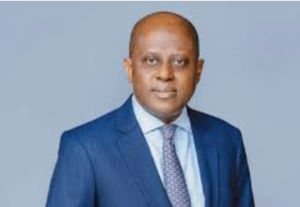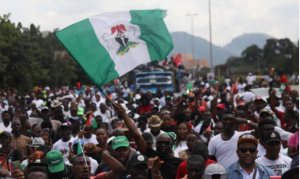Everton: Marco Silva & Farhad Moshiri coming up short amid grand ambitions


Marco Silva will face his former club Watford on Saturday
Everton manager Marco Silva returns to Watford on Saturday
facing the double jeopardy of a former club still locked in
acrimonious dispute with his current employers and a season
fading into mediocrity.
Manchester City’s 2-0 win at Everton on Wednesday came after a
vastly-improved display from Silva’s side but extends a dismal
sequence of only three wins from 13 Premier League games
which also contained an FA Cup fourth round loss at
Championship strugglers Millwall.
Everton have spent in the region of £300m since billionaire
Farhad Moshiri effectively took control of the club in February
2016 – and yet they are not even tapping on the top flight’s glass
ceiling let alone breaking through it.
So how has the new era of big-spending at Everton left them so
far adrift from Moshiri’s grand ambitions?
City go top after victory at Everton
Is Moshiri to blame?
Moshiri’s commitment, aspiration and financial support is not in
question.
He has funded lavish spending and is pushing forward with
plans for a £500m stadium, making his own “commitment of
equity” to fund the project at Bramley Moore Dock.
He increased his stake in the club to 68.6% last December and
will increase his majority shareholding to 77.2% no later than
July this year.
The flipside is that Moshiri’s decision making on football matters
has looked hugely flawed and lacking in direction.
Earlier this week there was talk of the need to “hold your nerve”
in times of trouble as Silva’s position became a subject for
debate.
This, past history suggests, is not one of his character traits.
Moshiri is now on to his fourth full-time manager at a club that
was once a symbol for stability when David Moyes and Bill
Kenwright were in partnership.
The early moves were understandable.
Roberto Martinez, not his appointment, was sacked as his tenure
hit the buffers.
The appointment of Southampton’s Ronald Koeman was
regarded as a coup and he enjoyed a good first season, finishing
seventh.
Scratch the surface, however, and Moshiri reveals a liking for
quick wins and a tendency to bow swiftly to the will of
supporters.
Moshiri saw Steve Walsh’s success at title-winners Leicester City
and effectively appointed a chief scout as director of football
after Koeman was in place.
The pair never appeared to have any sort of relationship and
embarked on a disastrous transfer policy lacking direction and
structure which Everton are paying for to this day.
As for holding his nerve, Moshiri sacked Koeman nine games
into his second season with Everton in the relegation places but
with no succession plan in place other than a ham-fisted attempt
to prise current incumbent Silva from Watford, provoking a
dispute over the approach that remains unresolved.
Moshiri then appointed Sam Allardyce as a desperate last resort
– before sacking him at the end of last season.
The club’s most recent accounts revealed £14.4m had been
spent on “settlement costs” for former employees such as
Koeman and Allardyce.
Silva eventually arrived in June but Watford still want Everton
punished for making him their target to replace Koeman after a
promising start at Vicarage Road. He was eventually sacked but
the bitterness remains, as he and Everton will discover on
Saturday.
Everton’s owner insists he wants success not “a museum” but
harsh, expensive lessons may tell him he needs to take a step
back and leave the big football decisions to others.
The highly-respected Marcel Brands arrived from PSV Eindhoven
with Silva in June and has already made such an impact that he
was elevated to Everton’s board of directors in January. He was
given a broader remit and responsibility for the club’s entire
football strategy.
Given Moshiri’s track record on big decisions, it now makes
sense to let Brands control the football levers.
Can Silva arrest Everton’s slide?
On previous evidence, there must be doubts – although he will
have been lifted by Everton’s efforts against the reigning
champions on Wednesday.
Silva’s career in England has been characterised by bright starts
before steep decline at Hull City and Watford.
Hull City accumulated 17 points from his first 11 games but only
four from the next seven as they were relegated. He won 21
points from 13 games at Watford but only five from his next 11 –
although some of this was attributed by the Vicarage Road
hierarchy to Everton’s unwanted advances.
The disturbing pattern has continued at Everton, with a promising
start of 22 points from his first 13 games but only 12 from the
next 13.
Silva must also show he has the capacity to plug holes in his
defence, again a fault line throughout his career and one he must
correct if he is to survive.
And at the heart of the problem is Silva’s use of zonal marking,
which has become such a bone of contention among fans that it
was one of the first questions he was forced to address from
supporters at Everton’s annual meeting.
Even in the satisfactory early days, Everton were easy to score
against from set-pieces – and Silva shows no signs of solving a
riddle that has plagued him.
Everton conceded all three goals, one from a handball it should
be stressed, from set-pieces in the FA Cup loss at Millwall and
there was genuine incredulity and anger at Goodison Park when
Wolves striker Raul Jimenez scored with embarrassing ease from
a free-kick in the 3-1 loss on Saturday.
Silva is again damned by statistics after Aymeric Laporte’s first
goal for City from another set-piece.
In his spell at Hull City, from January until the end of the season,
they conceded more goals (11) from set plays than any other
club in that period while at Watford his side shipped 12, behind
only Brighton and Leicester City.
Everton currently top this season’s roll of set-piece dishonour by
losing 12 goals in this manner in the league this season.
He will need to change his recent management history – and will
have to start in what will be hostile and unforgiving surroundings
at Vicarage Road.
Is Silva solely to blame – or are there too many bad
signings?
Everton are currently a monument to under-achievement – but this
is nowhere near a situation solely of Silva’s making.
Silva walked into a dysfunctional club along with Brands in June,
surrounded by the wreckage of a flawed structure and disastrous
transfer policy that saw the pair inherit a bloated, unbalanced
squad populated by exorbitantly high earners.
Everton might as well have piled up some of the cash spent on
big deals in the middle of Goodison Park and set it ablaze for all
the good it has done them.
Indeed, Everton can be held up as a shining example of how not
to operate in the market, examples being the huge contract
handed to Spain under-21 striker Sandro Ramirez, bought from
Malaga for £5m in summer 2017.
He has become an itinerant player, drifting on loan at Sevilla and
Real Sociedad, while Ajax captain Davy Klaassen was signed for
£25m when clearly not fit for Premier League purpose before
being shunted off to Werder Bremen at a £12m loss a year later.
Klaassen was part of another senseless purchasing policy which
saw three players signed for the same “number 10” position
along with Wayne Rooney and £45m Gylfi Sigurdsson.
This meant the wage bill, revealed in recently published
accounts as £145.5m, and squad numbers needed to be
trimmed drastically, instantly. It has been a top priority for
Brands, hence the locks put on the coffers in January.
Rooney went to DC United while the likes of Yannick Bolasie
went on loan to Aston Villa then Anderlecht and £25m Morgan
Schneiderlin, another high earner, sits idle and out of contention.
England goalkeeper Jordan Pickford, a £30m buy from
Sunderland, has been an isolated success but Silva is surrounded
by too many bad signings and money that has effectively been
wasted by previous regimes.
Everton have recouped cash with the sale of three of their most
talented players in Romelu Lukaku, John Stones and Ross
Barkley but the striker sold to Manchester United for a deal that
could be worth £90m has never been adequately replaced and
much of that re-invested cash has been squandered.
And even in his brief reign, Allardyce – now a constant and
somewhat selective commentator on his Everton era – managed
to inflict more serious damage.
Allardyce claimed he wanted to sign Pierre-Emerick
Aubameyang, who left Borussia Dortmund for Arsenal for £56m,
in January but the deal was too expensive “because of what
they’d spent previous to me arriving”.
The argument is flawed by the fact Allardyce was handed £47m
in that window to spend on Theo Walcott and Cenk Tosun, two
expensive, highly-paid flops Silva has been saddled with.
Yes, Silva has struggled to get performances and results but it
would be wrong for him to assume total blame for the mistakes
of others.
Will Silva survive?
Moshiri still backs his manager but has been shown to seek the
acceptance of fans with swift decisions when the atmosphere
turns toxic. This will be a danger if Silva continues to struggle.
Apart from requiring an improvement in results, it will help that
the calm, measured Brands is an advocate of stability and will
have a strong say in any decisions Everton may be under
pressure to take.
Brands, now the most powerful footballing figure at the club, will
be well aware Silva has only been in charge a matter of months
but also took on many players on exorbitant salaries who are
currently not in his plans such as Schneiderlin, Ramirez and
Bolasie.
The early work of the pair in the markets has shown promise,
with Lucas Digne suggesting he can be a successor to left-back
Leighton Baines, while Richarlison, who regards Silva as a father
figure, has excelled at times.
Andre Gomes, on loan from Barcelona, is a fan favourite and
Bernard has the capacity to create and also improve with more
time in the Premier League.
Everton are keen to encourage development of younger players
and the inclusion of Tom Davies, Jonjoe Kenny and Dominin
Calvert-Lewin against City reflects that policy, with high hopes
also held for Ademola Lookman.
Brands will call a lot of the shots, an experienced figure who will
not act in haste, panic or with excess emotion. He can be a
counter to Moshiri’s more hair-trigger tendencies when it comes
to managers.
Everton will hope Silva pulls the situation around because they
desperately need a period of stability after the changes and folly
of recent years.
Silva, however, will know Everton is no longer a club that gives
its managers years to build. He needs results – and he needs
them starting in the unwelcoming environment of his former club
this weekend.
![]()





